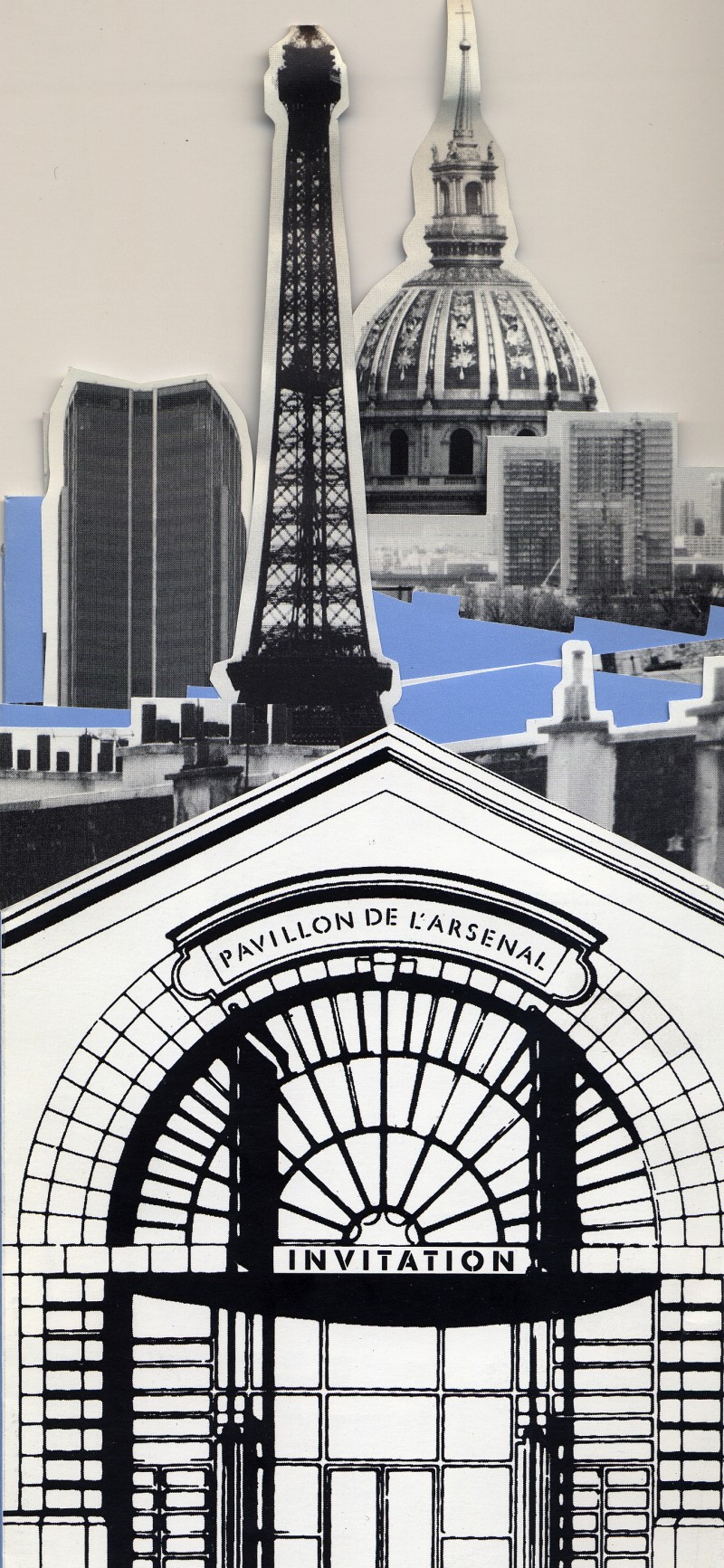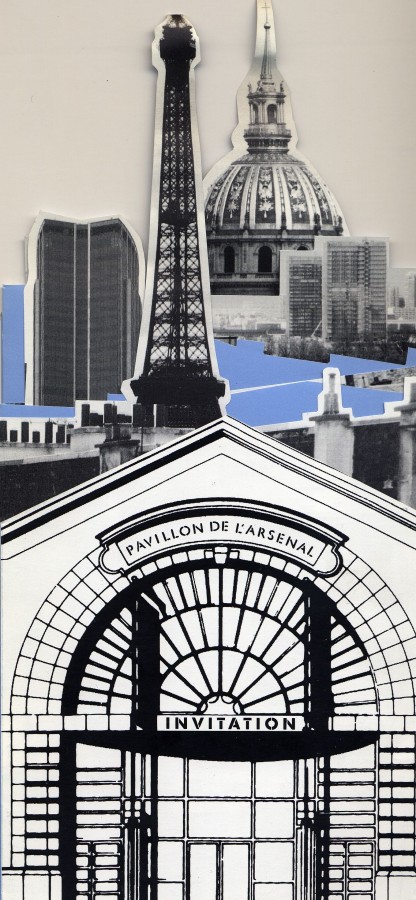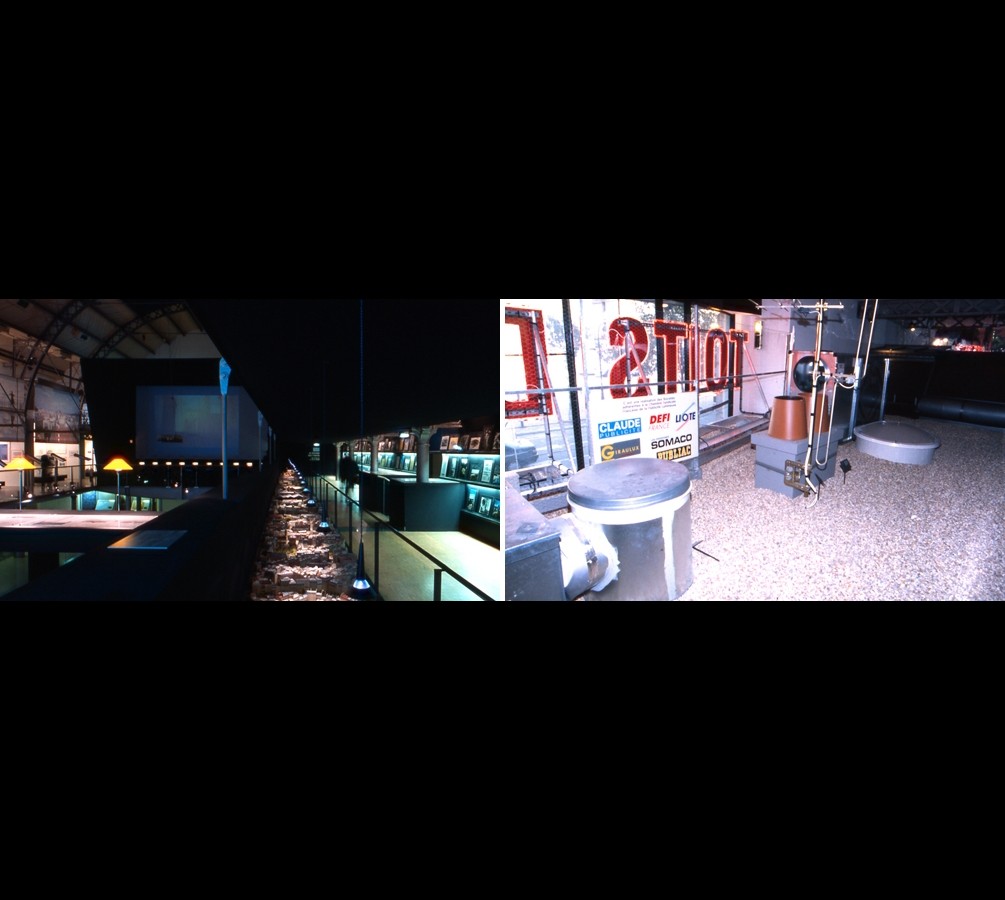It was not an exhaustive exhibition, providing a complete inventory of the rooftops of Paris, but rather, it attempted to help visitors appreciate and think about the notion of roofing by presenting it in a series of gradual brushstrokes.
The clear, easily readable set design mixed learning and pleasure, poetry and material.
It was developed in a linear path divided into four themes:
first, the rooftops of Paris in cinema, shared memories that took visitors to the heart of the subject of the exhibition;
secondly, the history of the Paris rooftops recounted chronologically from three converging vantage points: the roof seen from the street (as a crown), the roof at close range (place of uses and technology) and the roof seen from the sky (the way it fits into the landscape). Alongside, a series of urban models told the story of the changes in the Paris skyline;
thirdly, the technical constraints currently linked to designing roofs and their influence on aesthetic, economic and environmental factors; fourthly, projects that stand out for the quality of their roofs: rooftops ranging from the most eccentric to the most discreet, from roof terraces accessible to everyone to the most intimate rooftops. Fifty rooftops were exhibited, including, in particular, the terrace of the apartment designed by Le Corbusier for Charles Beistégui in 1929, which concluded the exhibition.
first, the rooftops of Paris in cinema, shared memories that took visitors to the heart of the subject of the exhibition;
secondly, the history of the Paris rooftops recounted chronologically from three converging vantage points: the roof seen from the street (as a crown), the roof at close range (place of uses and technology) and the roof seen from the sky (the way it fits into the landscape). Alongside, a series of urban models told the story of the changes in the Paris skyline;
thirdly, the technical constraints currently linked to designing roofs and their influence on aesthetic, economic and environmental factors; fourthly, projects that stand out for the quality of their roofs: rooftops ranging from the most eccentric to the most discreet, from roof terraces accessible to everyone to the most intimate rooftops. Fifty rooftops were exhibited, including, in particular, the terrace of the apartment designed by Le Corbusier for Charles Beistégui in 1929, which concluded the exhibition.






